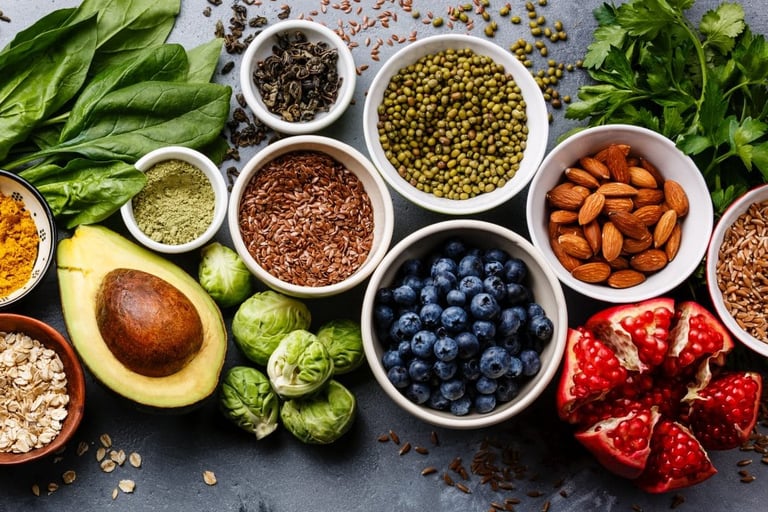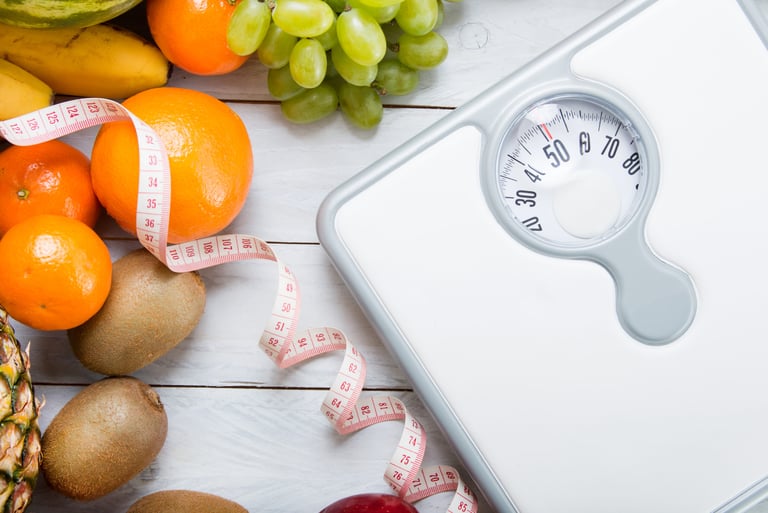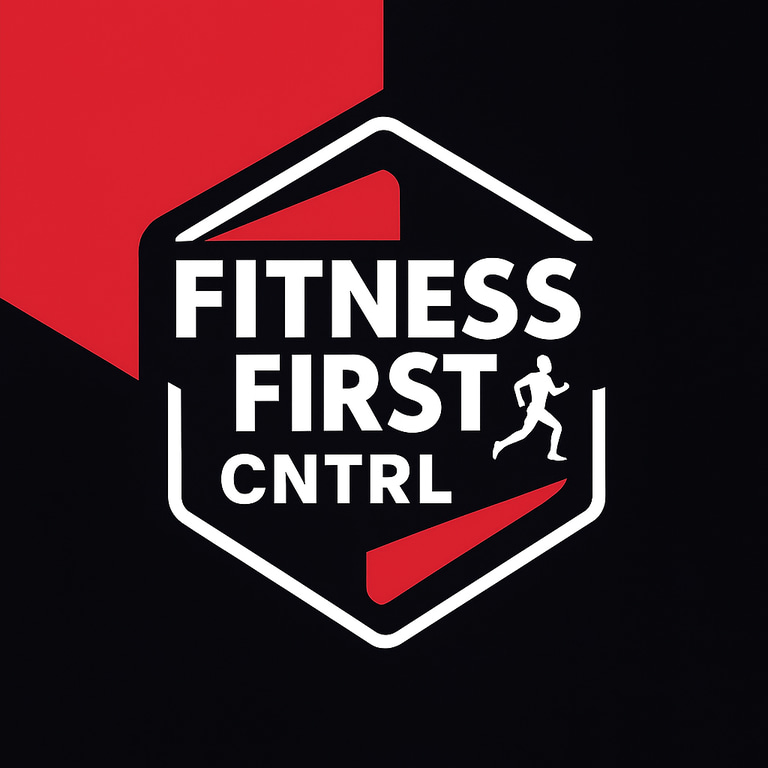USE CODE "fitnow" FOR 30% OFF your first purchase
Why You’re Not Losing Weight Even Though You're Dieting — 7 Surprising Reasons
7/9/20256 min read


Understanding Your Weight Loss Struggles
Embarking on a weight loss journey can often be fraught with challenges and disappointments. Many individuals invest significant time and effort into dieting, only to find that the scale does not reflect their hard work. This reality can evoke feelings of frustration, confusion, and even defeat. It's essential to recognize that you are not alone in this experience; countless people face similar hurdles in their quest for weight loss.
Despite adhering to dietary guidelines and reducing caloric intake, various factors may contribute to the inability to shed those stubborn pounds. Emotional aspects frequently accompany these struggles, where disappointment in the absence of progress often leads to a negative self-image and a decrease in motivation. As one grapples with the complexities of dieting, it's crucial to understand that weight loss is not solely a straightforward equation of calories in versus calories out. Various physiological, psychological, and environmental components can play significant roles in determining weight loss success.
The weight loss process is inherently personal and can vary significantly among individuals. What works for one person may not yield similar results for another, leading to further confusion. Many individuals may overlook the hidden influences that can impede their progress—these include metabolic factors, hormonal imbalances, stress levels, food quality, sleep patterns, and even external social pressures. Additionally, the emotional toll of unmet goals can sometimes perpetuate a cycle of self-sabotage, further complicating the journey.
In exploring the underlying reasons behind your weight loss challenges, the aim is to empower and encourage. Rather than viewing setbacks as failures, they can be reframed as opportunities for growth and understanding. This perspective sets the stage for uncovering the surprising factors that may be standing in the way of achieving your weight loss goals.
7 Surprising Reasons You’re Not Losing Weight
Weight loss is often perceived as a straightforward equation of calories in versus calories out; however, many factors can complicate this process. Below are several potential reasons that could hinder your weight loss journey, despite your adherence to a diet.
1. Consuming Too Few Calories: Many dieters mistakenly cut calories excessively, which can lead to a slowdown in metabolism. When the body perceives a drastic reduction in calorie intake, it can enter a state of conservation, where it clings to stored fat for energy.
2. Hidden Sugars in Foods: Many processed foods contain added sugars that may not be immediately obvious. These sugars can contribute to increased calorie intake without providing necessary nutrients, sabotaging your weight loss efforts.
3. Impact of Stress on Metabolism: Chronic stress triggers the release of cortisol, a hormone associated with fat retention, especially in the abdominal area. Elevated stress levels can lead to unhealthy eating patterns, further obstructing weight loss.
4. Inconsistent Eating Habits: Skipping meals or irregular eating times can lead to overeating later in the day. Maintaining a consistent eating schedule can help regulate hunger signals and improve metabolism.
5. Lack of Quality Sleep: Sleep is critical for overall health, including weight management. Poor sleep quality can result in imbalances in hormones that regulate appetite, making one more prone to cravings and overeating.
6. Emotional Eating: Many individuals turn to food for comfort during emotional distress. This behavior can lead to excessive calorie consumption and the consumption of less nutritious foods, hindering weight loss progress.
7. Slow Metabolism: Genetics, age, and lifestyle can influence metabolic rate. If your metabolism is inherently lower, it may require additional attention to exercise and diet to create a caloric deficit for weight loss.
Understanding these unexpected factors can be pivotal in identifying what may be obstructing your weight loss journey, allowing you to make more informed decisions moving forward.
📉 Feel Like You’re Doing Everything Right But Still Not Losing Weight?
You might just need the right structure - not more effort.
My FREE 6-Week Transformation Guide is built for real weight loss results and includes:
A complete, easy-to-follow diet plan
Fat-burning workouts for every fitness level
A full list of high-quality, metabolism-friendly foods
Daily routines to keep you consistent
🥗 Plus, it’s packed with no-nonsense tips to help you stop spinning your wheels.
👉 Grab your free guide here and finally start making progress.
Tips to Overcome Each Barrier
To address the various challenges encountered during a weight loss journey, it is essential to adopt practical strategies that reliably promote progress. One of the primary barriers is inadequate meal planning. Establishing a well-structured meal plan can mitigate impulsive food choices that often lead to excessive calorie intake. Create a weekly meal schedule that includes balanced portions of fruits, vegetables, proteins, and whole grains. Preparing meals in advance can further eliminate the temptation of resorting to fast food or unhealthy snacks.
Another common issue is the presence of hidden sugars in processed foods, which can sabotage dieting efforts. Reading food labels attentively is crucial. Look for terms such as sucrose, glucose, and high fructose corn syrup, as these signify added sugars. Opting for whole foods and preparing meals from scratch can significantly reduce the intake of these hidden sugars, allowing for more effective weight loss.
Stress management also plays a vital role in achieving weight loss goals. Prolonged stress can trigger emotional eating and lead to unhealthy dietary patterns. Implementing stress-reduction techniques such as mindfulness meditation, yoga, or deep-breathing exercises can help regain control. Scheduling regular relaxation time and engaging in hobbies can promote emotional well-being and deter stress-induced eating.
Furthermore, establishing consistent eating habits is crucial for success. Adopting a regular mealtime schedule helps regulate metabolism and reduces the likelihood of binge eating. Consistency in eating can help the body adapt to a routine, making it easier to manage cravings and hunger signals effectively.
Finally, improving sleep quality is paramount. Insufficient sleep has been linked to weight gain due to hormonal imbalances that affect appetite. Strive for 7-9 hours of quality sleep each night by establishing a calming pre-sleep routine and limiting screen time before bed. By addressing these diverse barriers, individuals can enhance their dieting habits and achieve sustainable weight loss results.
Sample Day of Smart Eating
To effectively illustrate a day of balanced and healthy eating, consider the following meal plan that adheres to smart eating principles. This sample day emphasizes whole foods, appropriate portion sizes, and the importance of hydration throughout your weight loss journey.
Breakfast: Start your day with a well-rounded breakfast, such as a bowl of oatmeal topped with fresh berries and a sprinkle of nuts. Aim for half a cup of oatmeal, which provides fiber, and a handful of mixed berries that contribute antioxidants. A tablespoon of almond butter can add healthy fats. Pair this with a glass of water or herbal tea to kickstart hydration.
Mid-Morning Snack: For a mid-morning boost, enjoy a small apple with a tablespoon of peanut butter. This snack balances carbohydrates with protein, keeping you satisfied until lunch while providing vitamins and minerals essential for overall health.
Lunch: A nutritious lunch might consist of a quinoa salad mixed with leafy greens, cherry tomatoes, cucumber, and a source of protein like grilled chicken or chickpeas. A portion size of about one cup of quinoa and a palm-sized piece of protein, accompanied by a lemon vinaigrette dressing, ensures a fulfilling meal without excess calories.
Afternoon Snack: Keep cravings at bay with a handful of mixed nuts or Greek yogurt. This will furnish your body with probiotics and healthy fats that can enhance satiety.
Dinner: For dinner, prepare a grilled salmon filet (approximately the size of a deck of cards) served with steamed broccoli and sweet potato wedges. Season both with herbs and a drizzle of olive oil for added flavor. This combination merges lean protein, healthy carbs, and essential nutrients.
Evening Hydration: Conclude your day with a soothing cup of herbal tea. Throughout the day, make sure to drink plenty of water. A well-hydrated body can facilitate metabolism, play a significant role in weight loss, and improve overall wellness.
Don’t Let Another Diet Fail You — Let This Be the One That Works
You’ve learned why weight loss stalls — now it’s time to take control.
My Free 6-Week Transformation Guide is your all-in-one system for lasting weight loss.
Inside, you’ll get:
✅ Structured fat-loss workouts that don’t require a gym
✅ A flexible, realistic diet plan that fuels results
✅ A full list of high-quality foods to boost metabolism
✅ Recovery and habit tips to make your results stick
It’s more than a plan — it’s a proven path forward.
👉 Download your free guide now and finally start seeing the weight loss results you deserve.


To get a better understanding of what your caloric intake should be, use this tool to help you find the calories you should be consuming on a calorie deficit:




